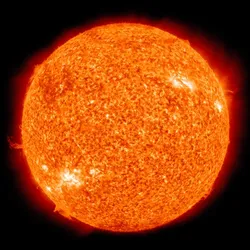
Level 1:
The weather was very, very hot. It was called a heatwave. People were sweating a lot because of the heat. They needed a place to stay safe from the heat. The weather was scorching, like being in an oven. A thermostat controls temperature. The heat was so high, it was hard to understand. Plants became dried and shriveled. There was not enough water, so it was scarce. Many things got flooded and overwhelmed. People felt very tired from the heat. Heatstroke made people very sick. It was important to act quickly. We must make things less bad. Our actions have results. We need to make choices with confidence. We have to keep the Earth healthy for a long time. We need to use energy sources that can be made again. We are the current group of people. We need to wake up and make changes. We need to work fast. We must decide and act. We need to prepare for a better future. We should choose things that are better for the environment.
Level 2:
The weather was extremely hot, and it was called a heatwave. People were sweating a lot due to the heat. They needed a safe place to take shelter from the extreme weather. It felt like being in an oven because the heat was so intense. A device called a thermostat controls the temperature in buildings. The high temperatures were hard to understand and made things very dry. There was a shortage of water, making it scarce. Many areas got flooded and overwhelmed by the heat. People felt very tired because of the intense heat. Heatstroke made people very sick. It was important to take action quickly. We need to make things less severe. Our actions have consequences. We must make decisions with confidence. We have to protect the Earth for future generations. We need to use energy sources that can be replenished. We are the current generation, and we need to wake up and make changes. We must act swiftly. We need to prepare for a better future. We should choose things that are better for the environment.
Full Story:
Hold on tight because we’re diving into one scorching topic today: the world’s hottest week. Brace yourself for a heatwave that had us all sweating buckets and seeking refuge in the shade. This is no ordinary weather report, my friends. Get ready for a wild ride through a blistering hot week that left us all feeling like we were living on the surface of the sun.
Picture this: temperatures soaring to record-breaking heights across the globe. From bustling cities to tranquil countryside, no corner of the planet was spared from the relentless heat. It was like Mother Nature cranked up the thermostat to the maximum and forgot to dial it back down. Phew!
So, what caused this fiery phenomenon? Well, scientists are pointing their fingers at a mix of factors. Climate change, of course, played a significant role. The rising greenhouse gas emissions have been cooking up trouble for our planet for quite some time now. But this week took things to a whole new level. It was as if the Earth had decided to give us a not-so-subtle reminder of the consequences of our actions.
Let’s talk numbers. We’re talking about temperatures that could fry an egg on the pavement. Thermometers were hitting mind-boggling highs, and people were left wondering if they had accidentally stumbled into a real-life sauna. It wasn’t just hot; it was melt-your-face-off hot. And it wasn’t just one day of scorching temperatures; it was an entire week of relentless heat.
From London to Los Angeles, Delhi to Dubai, cities around the world were sweating it out. Air conditioners were working overtime, and ice cream sales skyrocketed as people desperately tried to find some relief from the sweltering heat. But even the coolest ice cream couldn’t compete with the fiery breath of this heatwave.
The impact of the hottest week on Earth was widespread and profound. Agriculture took a beating as crops withered under the unrelenting sun. Water scarcity became a real concern as rivers dried up, and reservoirs reached alarmingly low levels. And let’s not forget about the toll it took on our bodies. Heat-related illnesses spiked, and hospitals were inundated with cases of heat exhaustion and heatstroke. This was no walk in the park; it was a battle against the elements.
But amidst the sweat-soaked chaos, this hot week also raised some serious questions. Are we prepared for the future? Can we adapt to the increasing intensity and frequency of these heatwaves? And most importantly, what are we doing to combat climate change and reduce our carbon footprint? It’s high time we take a hard look at our actions and make meaningful changes to protect our planet and ourselves.
The hottest week on Earth served as a stark reminder of the urgency of the climate crisis. It showed us that the consequences of our actions are no longer a distant threat but a scorching reality. It’s time to come together as a global community and take decisive action to mitigate the impacts of climate change. We owe it to ourselves, future generations, and the planet we call home.
As we bid farewell to the hottest week on record, let’s reflect on the lessons learned. Let’s channel our energy into sustainable solutions and push for renewable sources of power. Let’s demand action from our leaders and hold them accountable for the decisions they make regarding our environment. Let’s be the generation that steps up and makes a difference.
The world’s hottest week was not just about rising temperatures; it was a wake-up call. It reminded us that the heat is on, and we must act swiftly and decisively to cool things down. Our planet’s future hangs in the balance, and it’s up to us to turn down the heat and pave the way for a cooler, greener, and more sustainable world.
Questions:
What was the main cause of the world’s hottest week?
Answer: The main cause of the world’s hottest week was attributed to a mix of factors, with climate change playing a significant role.
How did the hottest week impact agriculture and water resources?
Answer: The scorching temperatures during the hottest week caused crops to wither, impacting agriculture, and led to water scarcity as rivers dried up and reservoir levels decreased.
Do you think it’s important to take urgent action to address climate change?
Answer : Yes, it is crucial to take urgent action to address climate change, as highlighted by the article’s emphasis on the consequences of our actions and the need to protect the planet and future generations.
Can heat-related illnesses be prevented during extreme heatwaves?
Answer: Heat-related illnesses such as heat exhaustion and heatstroke can be prevented by taking necessary precautions, such as staying hydrated, seeking shade, and avoiding prolonged exposure to the sun during extreme heatwaves.
What lesson did the world’s hottest week teach us about the environment?
Answer: The world’s hottest week served as a wake-up call about the urgent need to address the climate crisis and make sustainable choices to protect the environment for a cooler and more sustainable future.
Fill in the Blanks:
refuge, inundated, generation, sustainable, thermostat, sweating, heatstroke, decisively, consequences, mitigate, greener, swiftly, urgency, renewable, decisive, exhaustion, heatwave, withered, Heatwave, scorching, scarcity, Heatstroke
Title: The Hottest Week on Earth: A Sizzling Global ________
Hey there, folks!
Hold on tight because we’re diving into one ________ topic today: the world’s hottest week.
Brace yourself for a ________ that had us all ________ buckets and seeking ________ in the shade.
It was like Mother Nature cranked up the ________ to the maximum and forgot to dial it back down.
It was as if the Earth had decided to give us a not-so-subtle reminder of the ________ of our actions.
Agriculture took a beating as crops ________ under the unrelenting sun.
Water ________ became a real concern as rivers dried up, and reservoirs reached alarmingly low levels.
Heat-related illnesses spiked, and hospitals were ________ with cases of heat ________ and ________.
The hottest week on Earth served as a stark reminder of the ________ of the climate crisis.
It’s time to come together as a global community and take ________ action to ________ the impacts of climate change.
Let’s channel our energy into ________ solutions and push for ________ sources of power.
Let’s be the ________ that steps up and makes a difference.
It reminded us that the heat is on, and we must act ________ and ________ to cool things down.
Our planet’s future hangs in the balance, and it’s up to us to turn down the heat and pave the way for a cooler, ________, and more sustainable world.
________ made people very sick.
Vocabulary:
Heatwave: A period of very hot weather.
Sweating: Producing moisture on the skin due to heat or physical exertion.
Refuge: A safe place where someone can find protection or shelter.
Scorching: Extremely hot.
Thermostat: A device that controls the temperature in a building or a machine.
Mind-boggling: Extremely surprising or difficult to understand.
Withered: Shriveled or dried up, usually due to lack of water or heat.
Scarcity: A lack of something, in this case, a shortage of water.
Inundated: Overwhelmed or flooded with a large amount of something.
Exhaustion: Extreme tiredness.
Heatstroke: A severe medical condition caused by excessive heat and characterized by high body temperature and organ dysfunction.
Urgency: The need for immediate action or attention.
Mitigate: To make something less severe, harmful, or painful.
Consequences: Results or effects of an action.
Decisive: Able to make decisions quickly and effectively.
Sustainable: Capable of being maintained or continued without causing significant damage to the environment or depleting resources.
Renewable: Able to be replenished or replaced naturally or through human efforts.
Generation: A group of people born and living at the same time.
Wake-up call: An event or experience that makes people realize the need for action or change.
Urgent: Requiring immediate action or attention.
Swiftly: Quickly or promptly.
Decisively: In a way that shows the ability to make decisions quickly and effectively.
Pave the way: To make progress or prepare for future development or changes.
Greener: Referring to a more environmentally friendly or sustainable approach.
Sustainable: Capable of being maintained or continued without causing significant damage to the environment or depleting resources.



